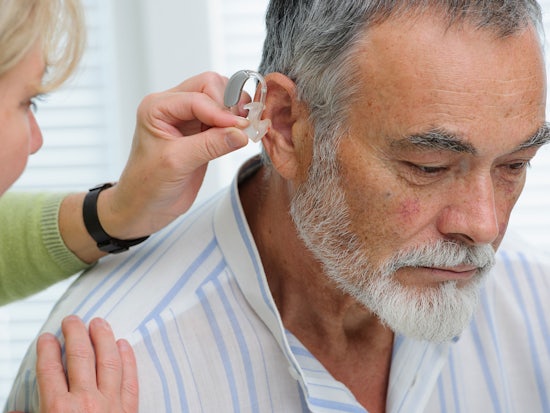Hearing rehab helps adjust to living with hearing aids
A large percentage of hearing aids, and sometimes very expensive hearing aids, end up in cupboards and drawers rather than ears. This non-use of hearing aids is a worldwide problem.

According to research, stigma is one reason why people don’t wear their aids, the majority of their research revealed people were disappointed and dissatisfied because they had been ‘over-promised’ on how much hearing aids would help.
This research simply confirms people don’t just need hearing aids, they need the professional rehabilitative services that go with them.
Hearing help is more than buying a gadget to put in your ear and there are many factors to consider when adjusting to living with hearing loss.
Understanding your hearing loss
You can lose your hearing for many reasons. It could be the result of an infection, a problem with the inner or outer ear, or it may be a neural problem or even genetic. By talking to a specialist, you can find out more about your type of hearing loss. You can then discover where the problems are, such as why you have difficulty in hearing female voices, or why you hear sounds but don’t understand them, and can give you strategies to help.
Hearing aids
One size does not fit all. Although there are many different hearing aid advertisements, and family members and friends may inform you of ‘better’ hearing aids, they may not be suitable for your type of hearing loss. Counselling and information prior to the fitting of devices is imperative if you are to get the best from your hearing aid. An explanation of the benefits, and limitations, of hearing aids will give you realistic expectations and help you adjust to wearing it.
Take the time to sit with your specialist and read the information. A good audiologist will also give you information about care for your aid, how to troubleshoot problems and encourage you to ask questions.
Hearing rehabilitation
When a person injures a leg or arm, they often have rehabilitation to help them use it again. Hearing loss is no different. You need to learn new strategies to help you with hearing and communication.
You may find when you start wearing your aid, you are bombarded with sounds – remember, you’ve been living in a very quiet world and suddenly hearing a lot of sounds will take some adjusting to. A specialist will help you work through this and give you techniques and tips to help you learn new listening habits. For instance, you may find it easier to wear the hearing aid for just a couple of hours a day at home before you venture out into a more social environment.
Other devices
There are some situations where a hearing aid isn’t the best device, but there are other aids available. These include Bluetooth, telecoils, TV listening devices, microphones and telephone amplifiers. When you are fitted with hearing aids, you should be made aware of these other options which will help enhance your hearing experience.
Support groups
Support groups are an ideal way to share experiences, learn how to handle situations and to generally have mutual support from other people experiencing hearing loss.
This article was created with support from Better Hearing Australia (VIC). Visit the Better Hearing Australia website for more information and support.






















